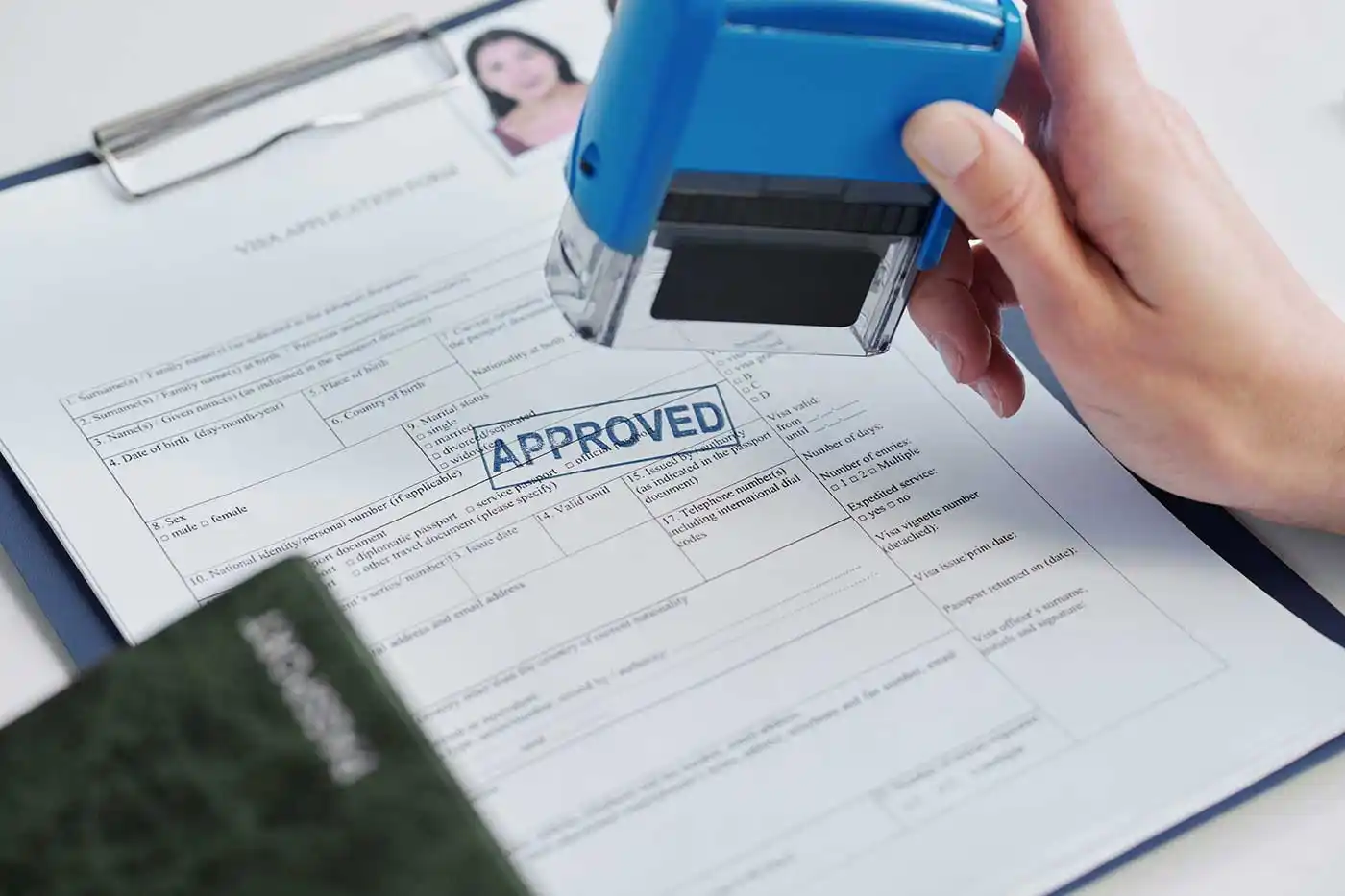T-Visa Lawyer in Fairfax
Navigating the complexities of immigration law can be overwhelming, especially for survivors of human trafficking seeking a T-Visa. At Saavedra & Perez Law, we are dedicated to helping you reclaim your life and secure the protection you deserve. Our experienced T-Visa lawyers in Fairfax provide compassionate, personalized legal guidance to assist you through every step of the application process. If you or a loved one needs assistance, contact us today at 571-583-0791 for a consultation. Let us help you take the first step toward safety and a brighter future.

Who Qualifies for a T-Visa and What Are the Eligibility Requirements
Human trafficking is a serious issue that affects thousands of individuals around the world, and the United States is no exception. Trafficking victims often face immense challenges in escaping their situations, but the T-Visa offers a pathway to legal status for those who have been subjected to severe forms of trafficking. This visa not only helps survivors stay in the U.S. but also allows them to rebuild their lives, gain employment, and eventually pursue permanent residency. Understanding the eligibility requirements for the T-Visa is critical for those who may be affected by trafficking or who are working with individuals who need assistance in this area.
What is a T-Visa?
The T-Visa is a type of visa specifically designed for victims of human trafficking. It allows eligible individuals who have been trafficked into the U.S. to remain in the country and receive protection. One of the key features of the T-Visa is that it offers both short-term and long-term relief, granting victims a temporary stay, work authorization, and the possibility to eventually obtain a green card.
The T-Visa is intended to help victims of “severe forms of trafficking” who have suffered due to the criminal act of human trafficking. For those who meet the eligibility requirements, it can be a lifeline for individuals who would otherwise be at risk of deportation or further victimization.
Who Qualifies for a T-Visa?
To qualify for a T-Visa, an individual must meet several important criteria. These eligibility requirements include being a victim of severe trafficking, being physically present in the U.S., and cooperating with law enforcement, among others.
Victim of a Severe Form of Trafficking
The first requirement for T-Visa eligibility is that the individual must be a victim of a “severe form of trafficking.” This term includes both sex trafficking and labor trafficking.
- Sex trafficking refers to situations where an individual is coerced or forced into engaging in commercial sex acts. This may include prostitution, pornography, or other forms of sexual exploitation.
- Labor trafficking refers to situations where an individual is forced or coerced to work under exploitative conditions, such as in sweatshops, domestic servitude, or agriculture, where the person has little to no control over their labor or freedom.
The trafficking must have involved force, fraud, or coercion. This means the victim was either physically or psychologically manipulated into participating, or they were deceived about the nature of the work or situation they would be in. Victims who are under 18 years old and involved in commercial sex acts do not need to show force, fraud, or coercion to qualify for a T-Visa.
Being in the U.S. Due to Trafficking
Another requirement for T-Visa eligibility is that the individual must be physically present in the U.S. as a result of trafficking. This means that the person must be in the U.S. due to the actions of the trafficker, and they must still be here when applying for the visa.
It’s also important to note that individuals who are brought into the U.S. for purposes other than trafficking but later become victims may still qualify for the T-Visa. For example, if someone was initially brought to the U.S. for legitimate purposes and later coerced into forced labor or commercial sex, they may still be eligible.
Cooperation with Law Enforcement
Victims of human trafficking must cooperate with law enforcement efforts to investigate or prosecute the traffickers. While it may be difficult or traumatic for victims to participate in these processes, cooperation is necessary to help bring traffickers to justice. However, there are exceptions to this requirement. In some cases, if a victim is unable or unwilling to cooperate due to fear of retaliation or other concerns, they may still qualify for the T-Visa.
It’s important to note that the victim does not need to testify or assist in a criminal case for the T-Visa application. Cooperation can be as simple as providing information to law enforcement, such as a statement or background on the trafficking situation.
Danger of Harm if Returned to Their Home Country
To qualify for the T-Visa, applicants must also demonstrate that they would face serious harm if they were returned to their home country. This harm could be in the form of further victimization, retaliation from traffickers, or other risks to their safety.
Many trafficking victims fear returning to their home countries because they believe their traffickers will continue to pursue them or harm them, even after they have left the trafficking situation. For this reason, the T-Visa provides a critical layer of protection, ensuring that victims are not sent back to dangerous or unsafe conditions.
The Applicant Must Be Under 18 (for Certain Cases)
For victims under 18 who are involved in commercial sex, the T-Visa eligibility requirements are different. Minors do not need to show that they were coerced or subjected to force or fraud to qualify for the T-Visa. Simply being a victim of commercial sex exploitation is enough for a minor to qualify for protection under the T-Visa program.
This provision is especially important, as it helps ensure that minors who are victims of sex trafficking can obtain legal protection and resources regardless of whether they were coerced into the trafficking situation.
Why is Eligibility So Important?
The T-Visa provides vital protections for trafficking victims, allowing them to remain in the U.S. without fear of deportation. Many trafficking victims are vulnerable and may not have the ability to escape their traffickers without the help of law enforcement and legal avenues such as the T-Visa. By meeting the eligibility requirements and applying for the T-Visa, victims can access not only safety but also the ability to work, pursue further immigration relief, and eventually apply for a green card.
Additionally, the T-Visa helps law enforcement by encouraging victims to come forward and cooperate with investigations without the fear of being deported. This, in turn, helps to dismantle trafficking operations and bring perpetrators to justice.
The T-Visa is a crucial tool for protecting victims of severe trafficking and offering them a path to safety and stability. However, understanding the eligibility requirements is key for individuals who may qualify for the visa. Being a victim of severe trafficking, cooperating with law enforcement, and showing a fear of harm if returned to one’s home country are among the main criteria.
Find Trusted Guidance from a T-Visa Attorney in Fairfax
If you or someone you care about has been a victim of human trafficking, you don’t have to face the legal process alone. A skilled T-Visa attorney can provide the support and representation you need to navigate this critical step toward safety and independence. At Saavedra & Perez Law, we are committed to helping you secure the protection you deserve. Call us today at 571-583-0791 to schedule your consultation. Together, we’ll work toward a brighter future.

